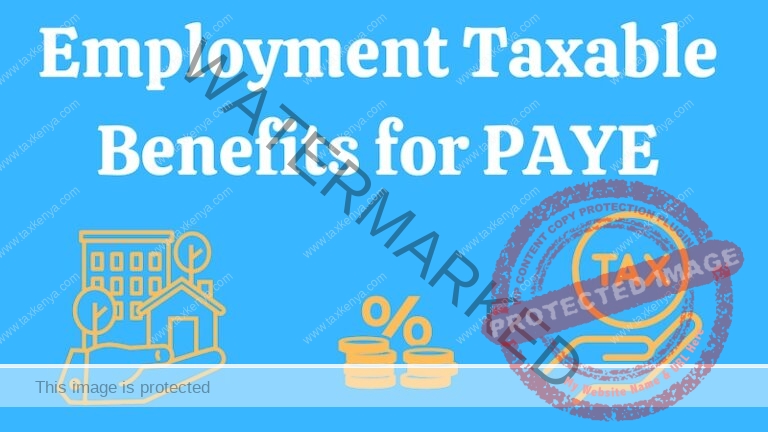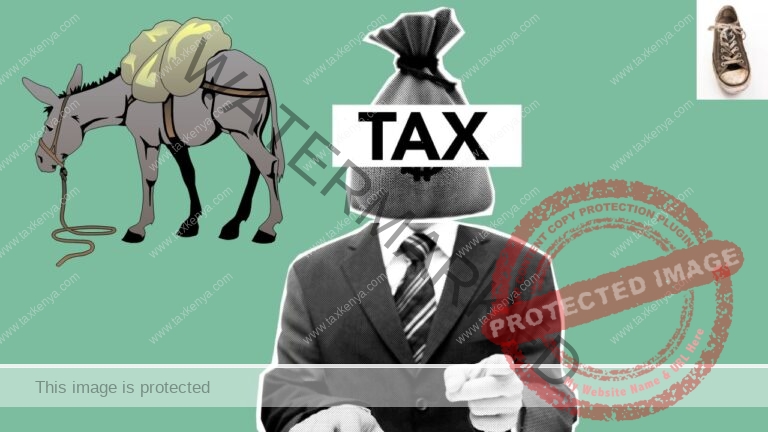Tax Procedures Act, 2015 (TPA) was assented to on 15th December 2015 and commenced operations on 19th January 2016.
(Post continues after photo)

(Photo by WAKA)
This is an act of Parliament.
[bha id=’https://www.bluehost.com/track/wakaguyu’ size=’190×60′ variation=’01’ align=’none’]
Procedures in all tax Acts in Kenya were consolidated into this one Act. However, some procedures were left in the specific tax Acts due to the uniqueness of those tax Acts.
What is the procedure?
According to the internet dictionary, a procedure is an established way of doing things. Procedures in tax enable achievement of certain tax goals effectively and efficiently e.g. resolving a tax dispute.
Source of content in TPA
The contents in the TPA were removed from the following tax Acts.
a. Income Tax Act Cap 470.
b. Value Added Tax, 2013.
c. Excise Duty Act, 2015.
d. East African Community Customs Management Act, 2004.
This means that the tax Acts are not complete without the TPA. The last chapter of the tax Acts is inevitably the TPA.
Users of the TPA
The TPA is used by various persons for purposes of tax in Kenya such as tax administration, tax collection, tax compliance and determination of tax disputes.
Some of the persons who use TPA are:
- KRA employees – for tax administration and tax collection.
- Taxpayers for tax compliance.
- Tax agents when handling taxpayers tax matters.
- Lawyers when acting on behalf of their taxpayer clients.
- Tax Appeals Tribunal – when determining tax disputes.
- Arbitrators in Alternative Dispute Resolution (ADR) proceedings to determine tax disputes out of the Tax Appeals Tribunal.
- Prosecutors in Courts of Law when prosecuting non-compliant taxpayers.
- Courts of Law – High Court and Court of Appeal when determining tax disputes. Also, the Supreme Court when determining tax disputes that require Constitutional interpretation.
- Tax professional such as tax consultant, tax accountant etc.
- Tax teachers – as one of the course texts.
- Tax students – as one of the course texts.
These are not the only users of the TPA. There are many other users.
Benefits of the TPA
Since the implementation of the various tax Acts was consolidated since formation of KRA in 1995, it was only logical to consolidate tax procedures in the country. Consolidation of the tax procedures in the various tax Acts in Kenya was necessitated my desire to improve various factors among them:
- Tax administration – to improve efficiency thus reduce the cost of tax administration and collect tax which is one of the core mandates of KRA
- Tax collection – improve efficiency and effectiveness of tax collection thus minimize tax collections costs in terms of money and time.
- Tax compliance – increase the levels of tax compliance by taxpayers by minimizing procedural barriers to tax compliance.
Other expected benefits from the consolidation of the tax procedures are:
- Reduce duplication of procedures.
- Streamline procedures.
- Protection of tax officers, taxpayers and tax agents.
- Better tax performance.
- Ease of use of the procedures.
- Higher tax productivity.
- Minimize the cost of tax compliance.
There are very many other benefits of the TPA.
Consequences of failure to follow the TPA
There are consequences of failure to follow tax procedures for the KRA, taxpayers, tax agents etc.
a. KRA
KRA’s core mandate is to collect taxes for the government which is one of the tax principals. The tax is collected from the taxpayer who is the other principal. Therefore, KRA is an agent for the government. In every stage, while dealing with taxpayers, KRA represents government interests.
TPA is expected to guide and manage the relationship between KRA as the government representative and the taxpayers.
b. Taxpayers
Taxpayers are expected to comply with the TPA. Failure to comply means that their tax compliance levels will below. This will result in payment of extra taxes in the form of fines, penalties and interests. Failure to comply may even result in jail time.
Also, there are maybe tax-related stress.
c. Tax agents
The TPA has specific guidelines that touch on how tax agents should act as far as representing taxpayers is concerned. TPA has outlined tax agent’s responsibilities and obligations. Besides, TPA has outlined consequences for failure to abide by the dictates of TPA.
d. Courts of Law
TPA has procedures on how tax matters are presented to Courts of Law. Failure to follow the procedures in the TPA means that the Courts of Law may decline to hear any tax dispute presented before them.
There are many other consequences for failure to follow the TPA.
It is important to note that the spirit of the TPA should be maintained at all times. TPA is expected to make things easier not difficult.
This is the first topic under tax procedures. In subsequent topics, we will discuss various issues that are in the TPA.
For any clarifications, get in touch through the email.
Our Call …. remember to subscribe to get our latest tax articles.
[bha id=’https://www.bluehost.com/track/wakaguyu’ size=’190×60′ variation=’01’ align=’none’]
(Disclosure: This website receives compensation from companies whose adverts appear here. We only promote products that we have used. We are an independent website and any opinions that are expressed here are our own.)
Feel free to send us tax and investments in Kenya questions or topics via email taxkenya@gmail.com that you would wish to be covered in this Website.
Disclaimer
This post is for general overview and guidance and does not in any way amount to professional advice. Hence, www.taxkenya.com, its owner or associates do not take any responsibility for results of any action taken on the basis of the information in this post or for any errors or omissions. Kenyan taxpayers must always rely on the most current information from KRA. Tax industry in Kenya is very dynamic.
©Wakaguyu Wa Kiburi
Email: taxkenya@gmail.com
Twitter: @taxkenya
Facebook: fb.me/taxkenya
Youtube: youtube/taxkenya.com shows





